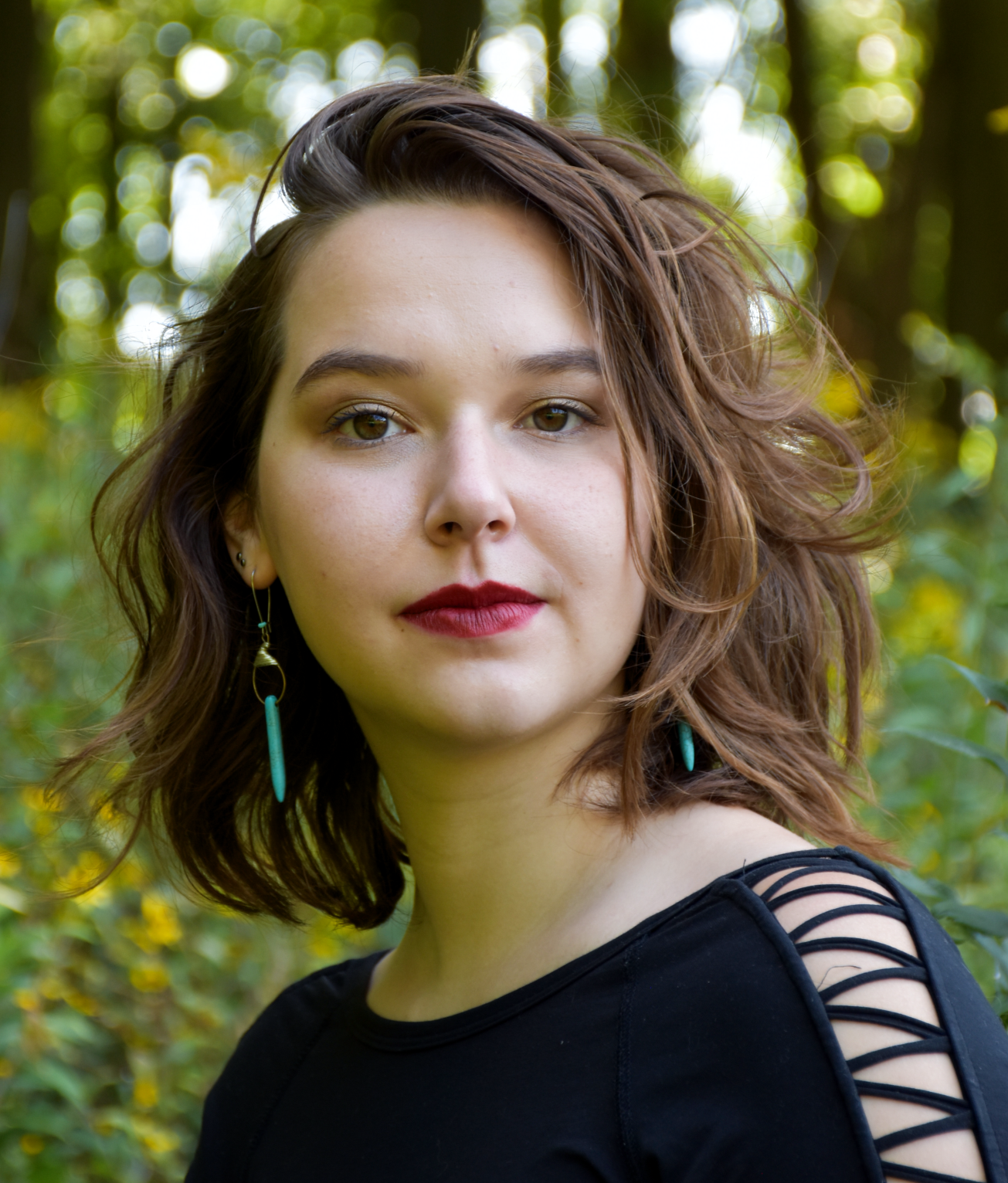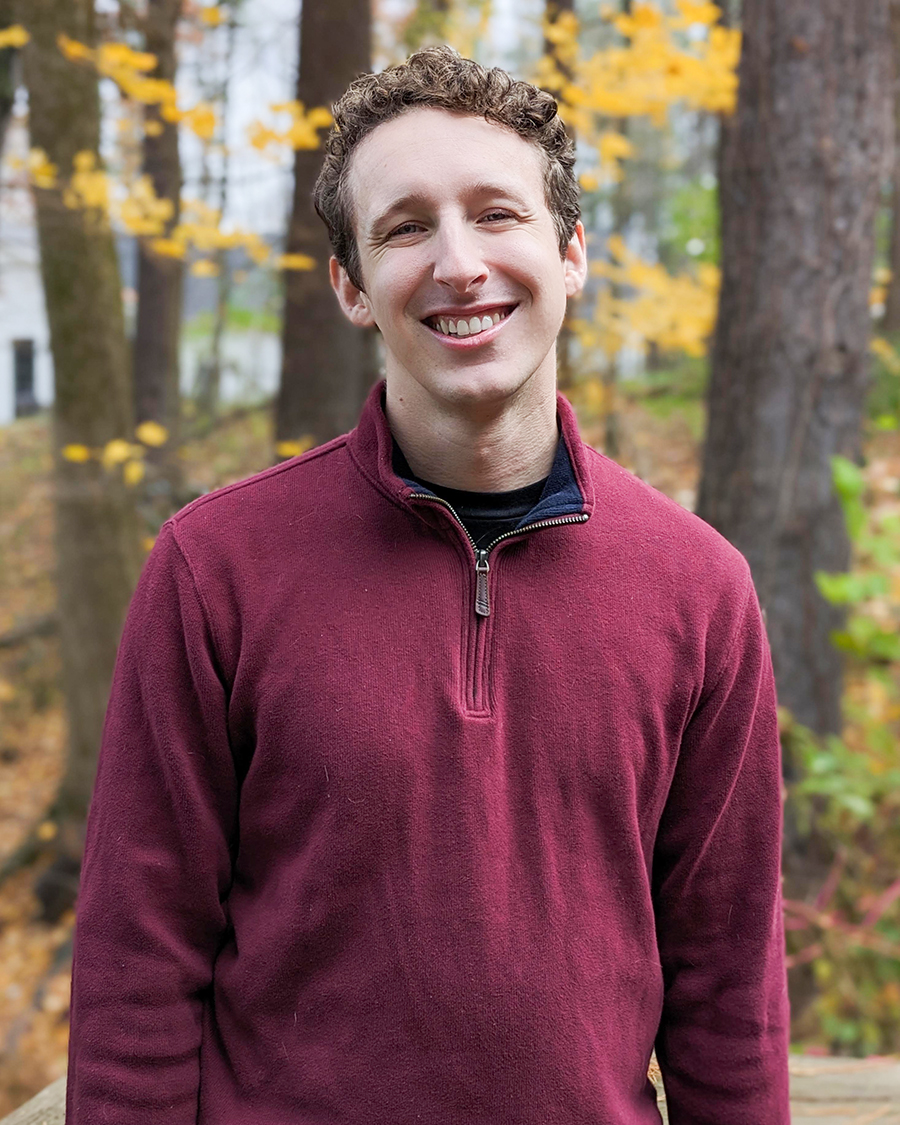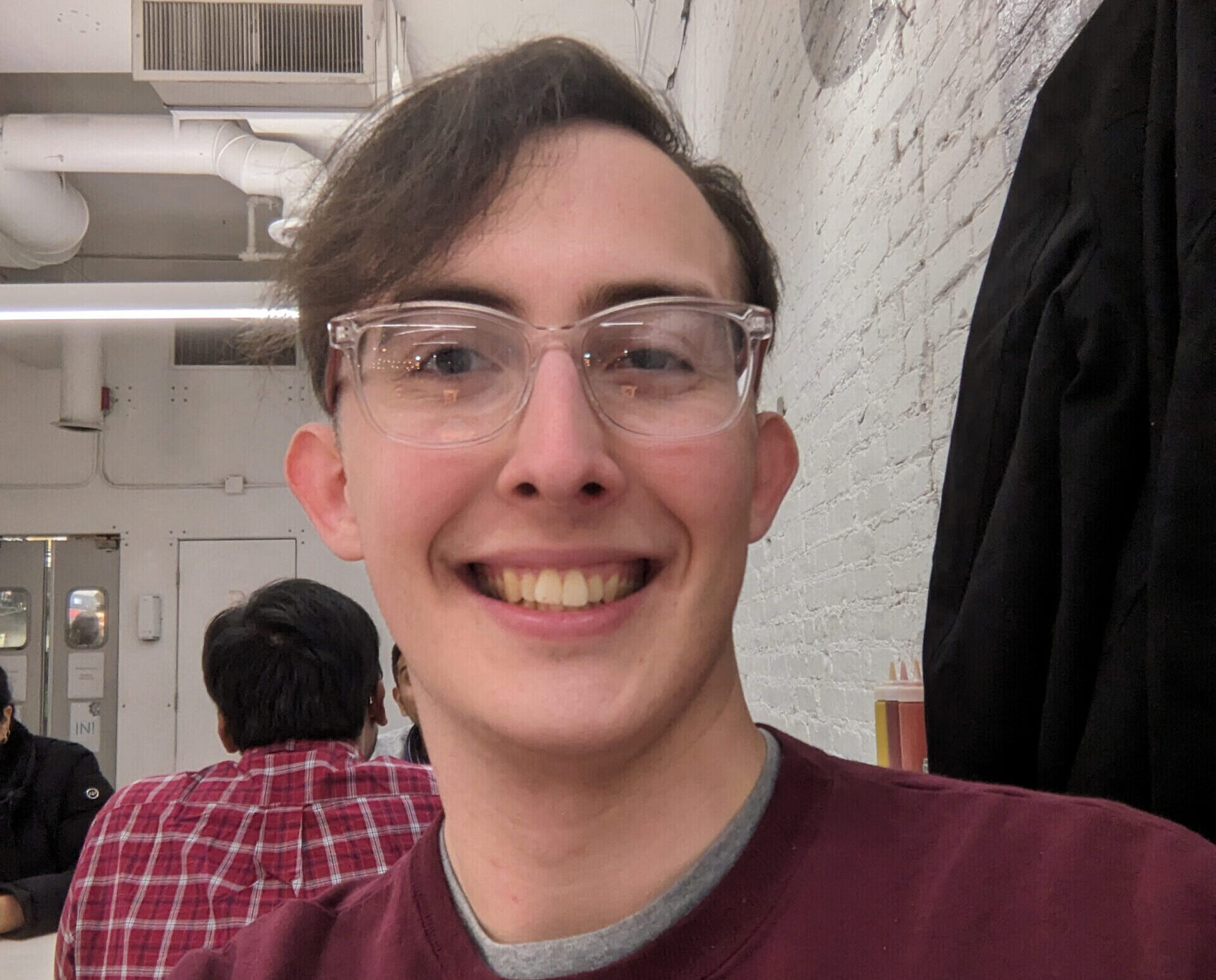
Alumni Interviews

Juliet Schleffer (LAE 2017-2019) joins our podcast host Jack Morin to discuss her life and creative work since graduation.

Paul Giessner
participated in Living ArtsEngine 2012-2016
Degrees: Bachelor’s and Master’s in Electrical Engineering and Bachelor’s in Organ Performance from the University of Michigan
Current Employment: Power Systems Engineer at ANZA Renewables
What have you been doing since graduation? I graduated with my master’s in electrical engineering in 2018. After that, I took a job at an engineering consulting firm called MPR Associates out of the Washington, DC. area. I worked there from 2018 to 2021 during the pandemic. Obviously, a lot of people were reevaluating things with their lives, and I wanted to move back to Michigan. I ended up finding a new opportunity that allowed me to work remotely. And that’s the company I’m still with today, Anza Renewables, a Solar and energy storage company. We’ve gone through some different evolutions, starting as an Engineering Procurement Construction (EPC) company which is basically companies that construct solar and energy storage facilities. Now we’re more focused on software platform/integration and procurement services. My role at Anza is as Power Systems Engineer. So, I’m focused on the design and comparison of different inverter products and different equipment that takes DC energy from either photovoltaic (PV) solar or energy storage and converts it to AC energy. I’m very much in the energy engineering world. That’s where I found my passion and excitement and I’m really enjoying it.
Why did you decide to join the Living ArtsEngine Alumni board? Living Arts holds such a special place in my heart and my life. Coming to college… It’s a new and challenging experience for a lot of people. Also, I was homeschooled in high school, and I think that it made it even more of a change for me. I feel like I had a community of people that were like-minded. They like exploring and playing and designing and being creative and being nerdy and wonky in cool and fun ways. I think there’s just something about the people that are drawn to Living Arts, the programming itself and the people that created such an incredible experience for me. As I was a musician, I studied pipe organ performance, so I had both music and engineering going at the same time as an undergrad. Being able to meet people in both those spaces and live with them and work on projects with them just built really strong ties. So, I wanted to give back to the program that gave a lot to me during my first few years as an undergraduate.
Tell us more about your musical experiences since graduation. I’ve not played pipe organ as much since graduating, but definitely more on the piano side. I’ve done quite a bit with accompanying people like my wife Ali in a variety of performances and a few other smaller things here and there. One cooler thing I have done that is keyboard oriented was participating in a group called the Regenerate Orchestra. There are actually some former Living Arts members that are involved with that. It’s a cool kind of community orchestra that’s based roughly in Ann Arbor/Ypsilanti. I’ve performed in that a couple of times as a keyboardist. It’s mostly ambient music and a very different kind of performance based mostly on timing. So, everybody uses a stopwatch or phone, to start a timer, and then, at different points in time you change your sounds and the performance unfolds more broadly. It’s not the typical classical music that I learned in college, but it’s a lot of fun. I’m always open to new musical experiences and trying to perform.
Did the experience you had in Living Arts impact you professionally? Some might say, oh, well, you’re not pursuing the music side as much and that that’s the more creative side. I think it’s a little more complicated than that, because I think what Living Arts showed me is that your life can be embedded with these types of experiences. Just earlier today, Ali and I signed up to do a music performance for an adult care facility for people with dementia and Alzheimer’s, so music is still a huge part of my life. From a career perspective, I think what Living Arts showed me is to really explore the options that you have available. As an engineer, I want to do things that come up with creative solutions and interesting approaches to benefit all of society. And there’s not, in my view, many better ways to do that than the energy system or the electricity systems and I think Living Arts has helped me kind of think about all the different ways that engineering and creativity more broadly, can impact people’s lives.
Is there anything you’d like to share? One of the things that’s been a bigger part of my life recently has been getting involved in the political domain and doing political advocacy work and campaigning. That started in 2022 when I moved back to Michigan and did a bunch of door knocking and campaigning and stuff like that, and I really enjoyed it. This year some folks locally have convinced me to run for County Commissioner up here in Livingston County. It’s a new experience, a new opportunity and it’s something I really enjoy. I think it’s a really cool way to connect to a community and understand the local issues and challenges that are going on.

The Living ArtsEngine (LAE) Alumni Podcast is a new ArtsEngine program created to give past LAE participants an opportunity to share their experiences since graduation. This may include their career, educational path, personal projects or just life in general. In this podcast, host Jack Morin, a senior in SMTD, interviews our first guest, Clayton Zimmerman who participated in Living ArtsEngine 2015-2017.

Alex Philpott
participated in Living ArtsEngine 2015-2017
Alex Philpott is currently based in Los Angeles, where his job allows him to develop the technology used to send people to space. Alex says that for him, this job is very much oriented around web design. He did both degrees at the University of Michigan, and was involved with the freshman and peer mentor programs in LAE. Looking back on these years, Alex says “It certainly made my 4 years at Michigan a lot richer and I made lifelong friends.” He still keeps in touch with the people he met in our program, and was recently able to connect with some fellow LAE alumni in Los Angeles. Alex, like many other Living ArtsEngine alum, found the community aspect to be the most memorable part of his time here. He particularly remembers his first football game with Living ArtsEngine friends as a freshman. This was a new and confusing experience that was made into a fun weekly tradition by the LAE community.

Camille Charara
participated in Living ArtsEngine 2012-2014

Karl Ronneburg
participated in Living ArtsEngine 2013-2014
Grad school was an excuse to move to New York, but still, it was a great, also a chance to hone the compositional skills a little bit, get some formal training there. And then I started freelancing as a composer and percussionist here in the city, and I’m in the contemporary classical, experimental world a little bit.
We bring their shows from beginning to life on the stage, and we facilitate the workshops and give them feedback on drafts. And we also oversee the super titles for new productions. It’s been a wild job. I’ve really been learning a lot and getting into opera at that scale. New opera at that scale is a little different from the DIY type opera stuff that I’ve been getting up to with my friends. But it’s great to have that bridge in my life, an opportunity to see how things are working at that scale.
What initially attracted you to the interdisciplinary aspects of the Living ArtsEngine Program? How did this play out in terms of your overall experience in the program? Yeah, absolutely. I grew up outside of Seattle, in Redmond, Washington, which is the town that the Microsoft headquarters is in. And so my dad and a lot of my other friends’ parents worked in the tech industry in Seattle and the area. And so, growing up, there was always a, “I’m doing all this music stuff, but maybe I should just go to engineering school.” In high school, I was taking computer science classes and doing some things with electronics and some engineering … I was on the robotics team in my high school, for example.
There was some interest in being around people who weren’t just musicians and people who were engaged in those, as the Living Arts brochure I think, said, “Making disciplines.” And so that was one of the things that attracted me to the program is that I would be around engineers and artists and architects and others from the School of Music, Theater & Dance that would help. It seemed like a good place to go and find people who were interested in doing stuff that was cross-discipline and collaborative.
Would you say that being in a dorm with students from different creative backgrounds had any impact on you as a musician and the work that you create? It’s interesting. I only realized this many years later when I had moved to New York. But one of the things I think being a percussionist prepared me to do, or maybe trained me to do, was to approach lots of different disciplines with a methodical and technique-based approach.
[As a] Percussionist, you have to be able to play all these different instruments and being able to pick up something new and try and learn how to make music out of it. It turns out those kind of skills, like physical coordination and timing, in a lot of ways opened me up to be able to get into the worlds of dance and the world of performance art. And then, just doing stuff with technology. Percussion is so contemporary-focused and world music-focused. There’s drums from all over the world. And so a lot of those things were part of my percussion education as far as electronics and new music, contemporary music, and music from all around the world.
There’s a microcosm of interdisciplinary-ness just within the world of percussion. And so coming into the Living Arts thing and being like, “Oh, I can do dance and theater and apply some of these other skills to engineering , it felt very natural to really start expanding into those directions and really exciting…….when I got my acceptance brochure and they were like, “Check out these living communities,” something about that resonated.
As someone who’s walked through the university pathway in Music, what piece of advice could you give that student, say in their freshman year? I think the main one is to go to stuff. I encourage students to go to as many things as they can without maybe overwhelming themselves. There’s a lot of work to do – But to go to your friends’ shows, go to those wacky performance art parties, go to what’s happening down in the [Living ArtsEngine]lounge. Go to what UMS is bringing to Michigan because they’re bringing some of the best artists from all over the world. Go to your friends’ recitals and concerts and show openings and competitions and plays and as many things as you can. And talk to them about it and maybe do stuff of your own if you feel up to it.
